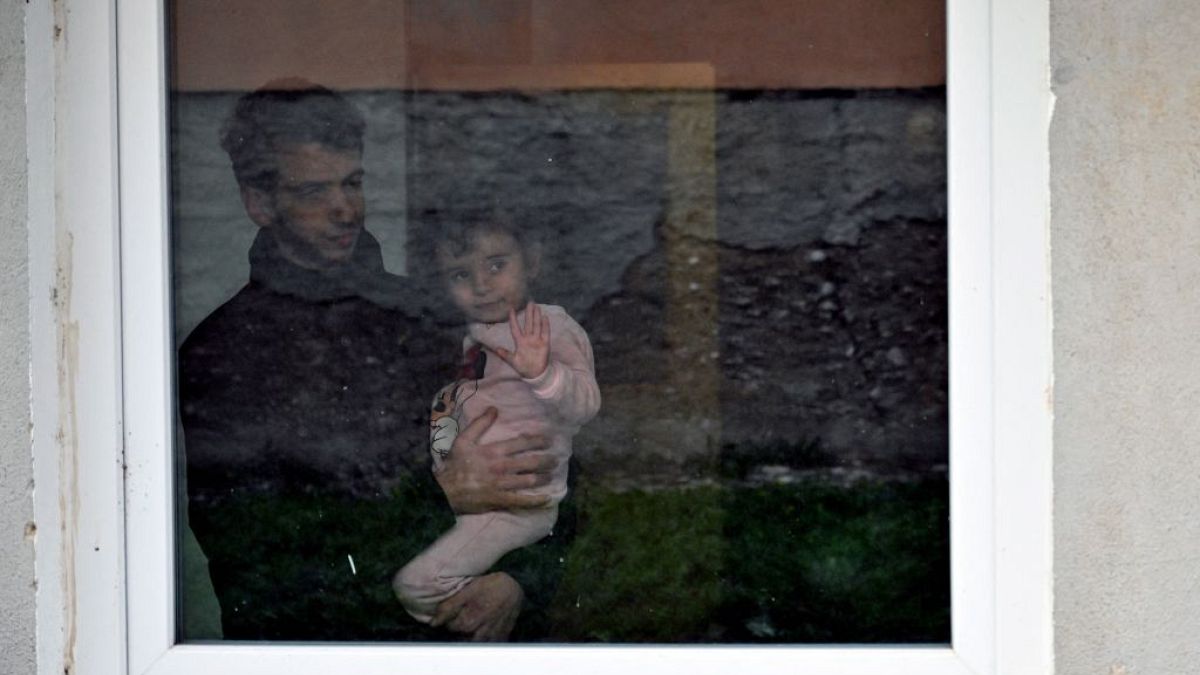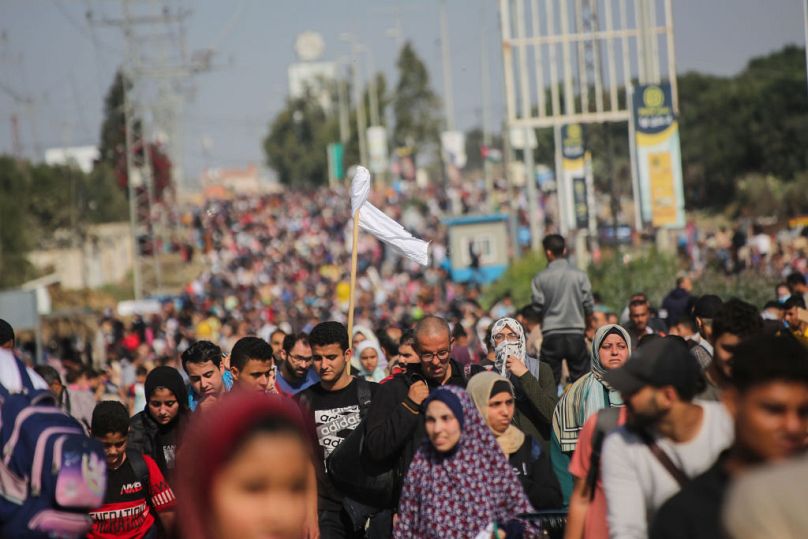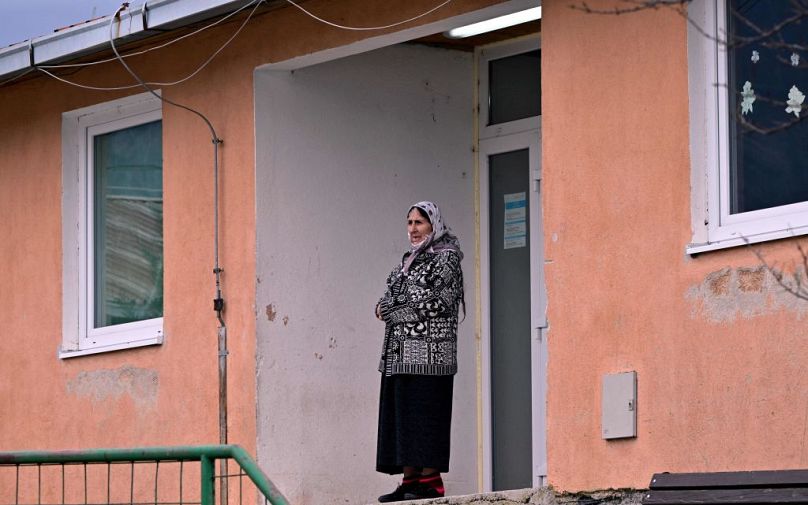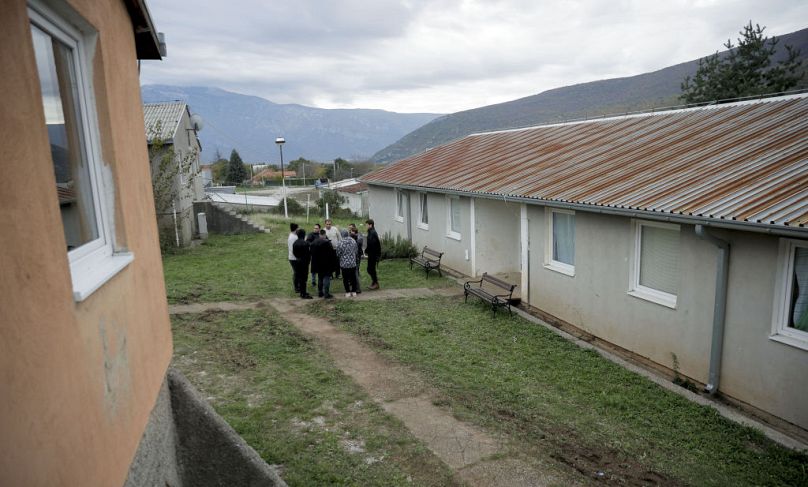It is estimated that upwards of 1.7 million Palestinians have been displaced since the conflict began on 7 October - including a number who fled Bosnia in the 1990s war, now forced to return back to the European nation.
Just married to a Bosnian woman, Samir El-Barawy left Sarajevo in 1991. The region was in chaos - the siege of the Bosnian capital was about to begin.
He returned home to the Gaza Strip to seek a safe refuge from the conflict.
Now, some 32 years later, he has been forced to abandon his homeland to flee back to Bosnia.
Speaking to AFP the now-59-year-old explains, “I left everything, but I am alive”.
He was talking just a few days after his arrival in a refugee centre in Salakovac in the south of the country.
He had fled with his family from his home in Beit Lahia, in the north of the Gaza Strip.
In 1991, he was one of a large number of Palestinians studying in Sarajevo.
They were welcomed at the time by Yugoslavia, of which Bosnia was then a part.
When the conflict flared up, his wife Sutka’s father encouraged them to leave, telling them “it will explode here.”
They departed, along with their young daughter Dalila.
Samir El-Barawy took care of a strawberry plantation in greenhouses for years - just "500 metres from the Israeli border".
Business was going well for a long time and he exported thousands of tonnes of fruit each year, particularly to Europe.
On the fifth day of the war, triggered by the unprecedented attack by the Palestinian Islamist movement Hamas against Israel on 7 October, leaflets launched from the air by Israel fell on Beit Lahia.
“We were told to go south via the Salah ad-Din road,” which crosses the Gaza Strip, El-Barawy explains.
His family then spent several weeks sheltered in a UN school, before managing, like other dual nationals and some wounded people, to leave the enclave at war via the Rafah crossing point towards Egypt.
Around 240 people were kidnapped in Israel during the Hamas attack which caused the deaths of 1,200 people, the vast majority civilians, according to Israeli authorities.
Since then, Israel has vowed to “annihilate” the Islamist movement - and has relentlessly shelled the Gaza Strip.
A four-day humanitarian truce in Gaza came into effect on Friday, after days of Israeli bombardments which have left more than 14,800 victims - including 6,150 children - dead and hundreds of thousands more displaced, according to the Hamas government.
Samir and Sutka's house was targeted "on the sixth day of the war", he says, adding, “It was like an earthquake.”
Along with their two daughters, one of their daughters-in-law and their grandchildren, some fifteen people in total, they left the place they had called their home once again.
“We saw corpses along the road, dead people in cars. Dogs wandered around the corpses. There was a very strong smell,” El-Barawy says of the journey to safety.
"We have decided never to return there again. What remains of my life, I want to live in peace. There is no more life there."
Other displaced people have a little more hope for the future of Gaza and the Palestinian people.
“I'm going to go back as soon as the war ends,” Doctor Ahmed Shahin tells AFP.
The 55-year-old was evacuated on 16 November with a group of dozens of people, made up of Bosnians and their dependents.
Shanin had initially thought he would never return to his home in Jabalia, in the northern Gaza region.
The paediatrician, who studied medicine in Bosnia in the 1990s, volunteered to work in a hospital in the north of Gaza City as the conflict started.
He saw some terrible things - including a woman killed in her ninth month of pregnancy.
“We did a caesarean section to save her baby. The mother died with a head injury.”
Conditions at the hospital very quickly became precarious. “No medications, operations without anaesthesia, amputations, no water to wash, to sterilise…” he says.
As the war progressed, “the arrival of corpses and wounded intensified” and the doctor could no longer hold out.
While studying in Bosnia, he had obtained Bosnian nationality so, with his wife, their three daughters and their 17-year-old son they left the home they had built.
Fleeing in a state of "total paralysis", the decision to leave was even harder.
The home was also the site where their eldest child Ali was killed by a missile in July 2014, during a previous flare-up between Hamas and Israel in July 2014.
“Ali would have been 23 today,” Shahin says.
“What is happening in Gaza is a global shame, the doctor says, holding back tears.
"The world watches the live destruction of buildings full of children and women, watches the blood flowing while it is still warm - and it does nothing. It's not fair."



